15 Women Making Science Stronger Than Ever By Advocating for Equity
NewsAs a woman-founded and woman-led organization, advocacy for diversity, equity, inclusion, and belonging (DEIB) is in our DNA. Our founding CEO Susan Solomon always emphasized how mission-critical it was that all of the brightest minds in science are given the opportunity to contribute. Her legacy of advocacy continues to be championed by our new President and CEO, Jennifer J. Raab, and lives on throughout our community. In celebration of Women’s History Month and this year’s theme of women who are advancing DEIB, we are pleased to highlight 15 women who are helping us move toward a future where everyone can thrive in science.
Laura Andres-Martin, PhD
The NYSCF Research Institute
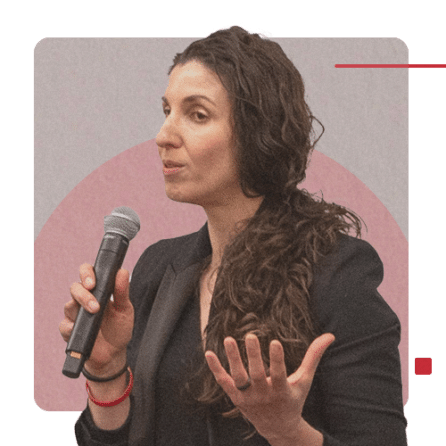 Dr. Andres-Martin studies ovarian cancer – a highly fatal disease with very few effective treatment options. As the leader of our Women’s Reproductive Cancers Initiative, she is using stem cell technology to establish methods for determining the best course of treatment for each individual patient.
Dr. Andres-Martin studies ovarian cancer – a highly fatal disease with very few effective treatment options. As the leader of our Women’s Reproductive Cancers Initiative, she is using stem cell technology to establish methods for determining the best course of treatment for each individual patient.
“Funding and research for ovarian cancer has historically been neglected, and as such, innovation has stilted,” she said. “And here at NYSCF, we can apply our state-of-the-art technologies to this disease to create a personalized approach. We receive tumor samples from patients and use them to make avatars that represent each individual patient, and even each individual tumor within that patient, so that we can find tailored therapies and accelerate new ones for so many women in need.”
Teresa Wright Johnson
Patient Advocate
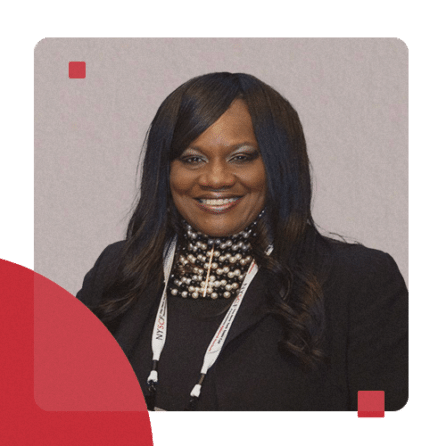 Ms. Wright Johnson is a patient advocate, inspirational speaker, author, poet, and a community activist. She is deeply passionate about health equity, and her advocacy efforts solidify her commitment to amplifying the patient voice, as well as promoting racial and social justice. She urges scientists to always keep patients top of mind when conducting their research, especially groups who have been mistreated by the medical community in the past.
Ms. Wright Johnson is a patient advocate, inspirational speaker, author, poet, and a community activist. She is deeply passionate about health equity, and her advocacy efforts solidify her commitment to amplifying the patient voice, as well as promoting racial and social justice. She urges scientists to always keep patients top of mind when conducting their research, especially groups who have been mistreated by the medical community in the past.
“You build trust by knowing the community that you are trying to serve, by humanizing your work, by telling these communities and showing these communities that you are more than what you say, that you’re willing to go the distance,” she said. “We also have to acknowledge a person’s history and the things that they’ve gone through in the past. We cannot deny the medical mistrust and the trauma that so many communities have endured. So, it doesn’t mean that you have to be responsible for the things that occurred, but you have to acknowledge it in order for us to truly move forward and not repeat the mistakes of the past.”
Learn more from Ms. Wright Johnson about humanizing research to foster equity.
Valentina Fossati, PhD
The NYSCF Research Institute
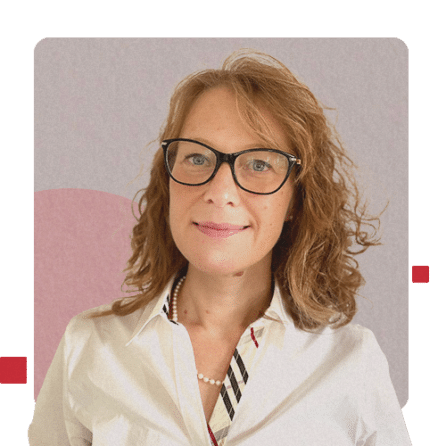 Dr. Fossati uses stem cells to research neurodegenerative diseases like multiple sclerosis and Alzheimer’s, aiming to find better treatments for all patients. She is also a fierce advocate for women in science who has mentored many budding female scientists and aims to make the stem cell field more inclusive.
Dr. Fossati uses stem cells to research neurodegenerative diseases like multiple sclerosis and Alzheimer’s, aiming to find better treatments for all patients. She is also a fierce advocate for women in science who has mentored many budding female scientists and aims to make the stem cell field more inclusive.
“I consider mentoring junior scientists the most important responsibility of my work,” she shared. “Mentoring so many incredible women has also been one of the most rewarding parts of my career. We need to provide early-career female scientists with the right guidance and support to help them overcome barriers and reach their full potential”.
Krystal Tsosie, PhD
Arizona State University
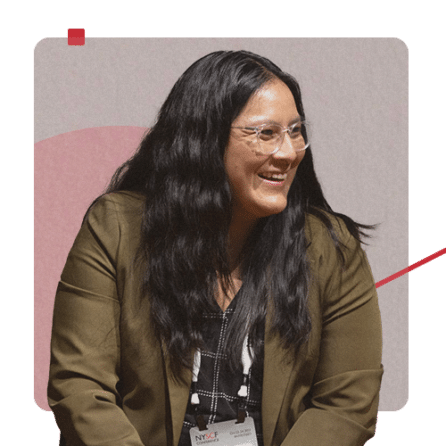 Dr. Tsosie is a geneticist-bioethicist who is working to correct health disparities affecting Indigenous communities. As an advocate for Indigenous genomic data sovereignty, she co-founded the first US Indigenous-led biobank, a 501c3 nonprofit research institution called the Native BioData Consortium.
Dr. Tsosie is a geneticist-bioethicist who is working to correct health disparities affecting Indigenous communities. As an advocate for Indigenous genomic data sovereignty, she co-founded the first US Indigenous-led biobank, a 501c3 nonprofit research institution called the Native BioData Consortium.
“The Native BioData Consortium is Indigenous-led with community members and scientists. We brought high-throughput sequencing to a rural Tribal Nation for the first time,” she shared. “We’re talking about -omics research that looks at social and structural determinants of health along with biological factors in health. Who better than to partner with communities themselves for informing these questions that impact their health than them?”
Learn more from Dr. Tsosie about her work in research and bioethics.
Valentina Greco, PhD
Yale University
NYSCF – Robertson Stem Cell Investigator Alumna
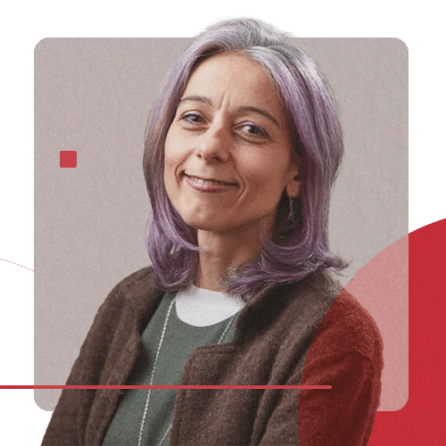 Dr. Greco studies regeneration in the skin, with a focus on wound healing and cancer. She serves as Vice Chair of Diversity at Yale University, where she is working to establish programs for ensuring that underrepresented voices in STEM are uplifted.
Dr. Greco studies regeneration in the skin, with a focus on wound healing and cancer. She serves as Vice Chair of Diversity at Yale University, where she is working to establish programs for ensuring that underrepresented voices in STEM are uplifted.
“For any cultural shifts that we want to accomplish, we have to do it as a group. Individuals are never the answer, yet this remains the main narrative and is what gets rewarded,” she remarked. “Perpetuating the key contributions of groups rather than individuals throughout the community that we all belong to is the way that things are going to change.”
Read more from Dr. Greco about strategies for promoting gender equity in STEM.
Ru Gunawardane, PhD
Allen Institute for Cell Science
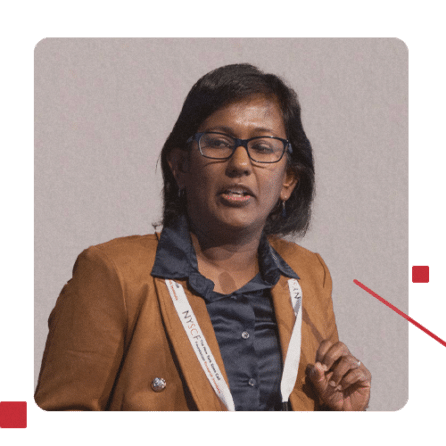 Dr. Gunawardane is the Executive Director of the Allen Institute for Cell Science, where she leads a team of scientists, engineers, artists and other experts, all working together to understand how our cells function. She is a proponent of including more diverse participants in biomedical research and clinical trials. Dr. Gunawardane’s team aims to understand how cells become diseased, and to do this, they first must define how a normal, healthy cell looks, and that can differ across the population.
Dr. Gunawardane is the Executive Director of the Allen Institute for Cell Science, where she leads a team of scientists, engineers, artists and other experts, all working together to understand how our cells function. She is a proponent of including more diverse participants in biomedical research and clinical trials. Dr. Gunawardane’s team aims to understand how cells become diseased, and to do this, they first must define how a normal, healthy cell looks, and that can differ across the population.
“If we can all come together and create stem cell lines from diverse donors that have different genetic backgrounds, I think we can really expand what our definition of ‘normal’ is, and we’ll be able to define when certain cellular structures are outside of that distribution.”
Hear more from Dr. Gunawardane about her work to diversify disease research.
Paola Arlotta, PhD
Harvard University
NYSCF – Robertson Stem Cell Investigator Alumna
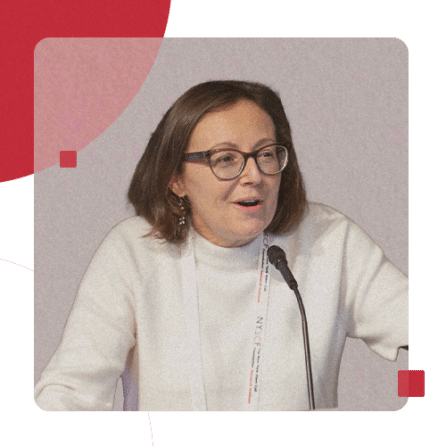 Dr. Arlotta studies brain development and disease, with a special focus on creating 3D models of the brain. She is a founding member of our Initiative on Women in Science and Engineering (IWISE), and has always placed an emphasis on ensuring women have the resources they need to succeed in STEM.
Dr. Arlotta studies brain development and disease, with a special focus on creating 3D models of the brain. She is a founding member of our Initiative on Women in Science and Engineering (IWISE), and has always placed an emphasis on ensuring women have the resources they need to succeed in STEM.
“Should my daughter choose to enter this field, I hope she will find a scenario where you can balance a lot of things in your life and still be a successful scientist,” she shared.
Check out actionable strategies devised by Dr. Arlotta and the IWISE group – published in Cell Stem Cell for supporting women in science.
Maike Sander, PhD
Max Delbrück Center in Berlin, Germany
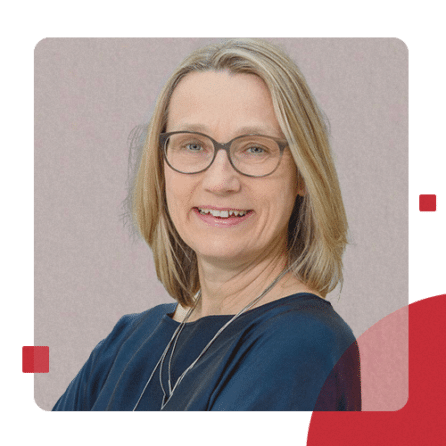 Dr. Sander is a leading stem cell scientist and diabetes researcher who has worked internationally and received numerous awards. She is also a fierce advocate for DEIB in science who uses her leadership to foster culture change.
Dr. Sander is a leading stem cell scientist and diabetes researcher who has worked internationally and received numerous awards. She is also a fierce advocate for DEIB in science who uses her leadership to foster culture change.
“Five or ten years ago, I think the attitude was more along the lines of ‘if we recruit more women, then the problem will just kind of self-correct,’” explained Dr. Sander. “But in the wake of the ‘#MeToo’ movement, we’ve realized it’s more than that – we have to have discussions about the inherent power structures and what they do to people once they’ve entered the field.”
Hear more of Dr. Sander’s reflections on DEIB in STEM.
Raeka Aiyar, PhD
The New York Stem Cell Foundation Research Institute
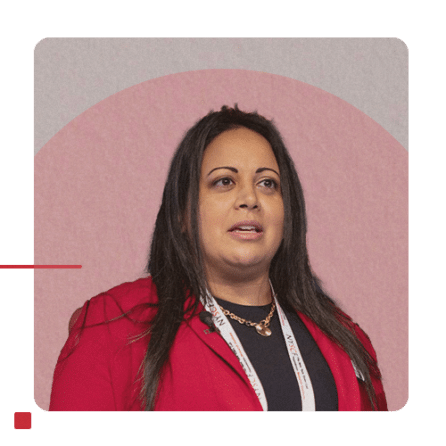 She is an experienced geneticist turned science communicator who leads NYSCF’s diversity, equity, inclusion, and belonging efforts across an internal affinity group program, communications, events, health equity research, and grantmaking.
She is an experienced geneticist turned science communicator who leads NYSCF’s diversity, equity, inclusion, and belonging efforts across an internal affinity group program, communications, events, health equity research, and grantmaking.
“We like to think that science is a meritocracy, but that is certainly not the case because of things like systematic discrimination and individual biases,” she stressed. “But if we can eliminate that mental anguish, imagine what we can achieve.”
Hear Dr. Aiyar discuss DEIB on The Lab Coats and Life Podcast.
Carolyn Rodriguez, MD, PhD
Stanford University
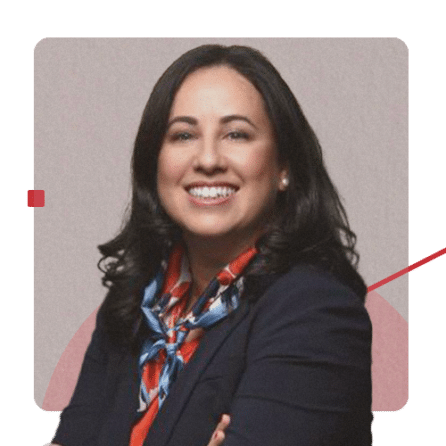 Dr. Rodriguez is a clinical psychiatrist and researcher focused on disorders like OCD. In her role at Stanford, she aims to implement policies that encourage behaviors that promote DEIB.
Dr. Rodriguez is a clinical psychiatrist and researcher focused on disorders like OCD. In her role at Stanford, she aims to implement policies that encourage behaviors that promote DEIB.
“Linking diversity efforts to department chairs’ bonus is very helpful, as well as setting specific criteria for how many times one has to meet with the diversity representative, and ensuring that the DEIB representative has a seat at the leadership table,” she noted.
Read highlights of a discussion on DEIB featuring Dr. Rodriguez.
Kristen Brennand, PhD
Yale University
NYSCF – Robertson Stem Cell Investigator Alumna
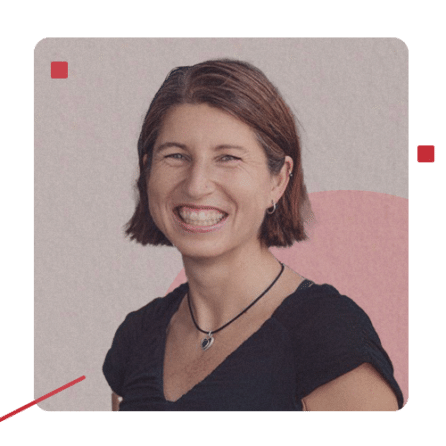 Dr. Brennand is an expert in psychiatric disorders like schizophrenia. She is also an advocate for widening the representation of women in the field, making sure that they are supported at every stage of the career pipeline and not saddled with over-responsibility.
Dr. Brennand is an expert in psychiatric disorders like schizophrenia. She is also an advocate for widening the representation of women in the field, making sure that they are supported at every stage of the career pipeline and not saddled with over-responsibility.
“Women and minorities can become overburdened when the same two women or the same two minorities are asked to be on every committee,” she noted. “We need to better prioritize diversity and eliminate institutional biases to correct for this.”
Hear more from Dr. Brennand about how women were disproportionately affected by the pandemic, and her advice on navigating career advancement, mentorship, imposter syndrome, parenting, and other issues of work-life balance.
Shruti Naik, PhD
New York University
NYSCF – Robertson Stem Cell Investigator Alumna
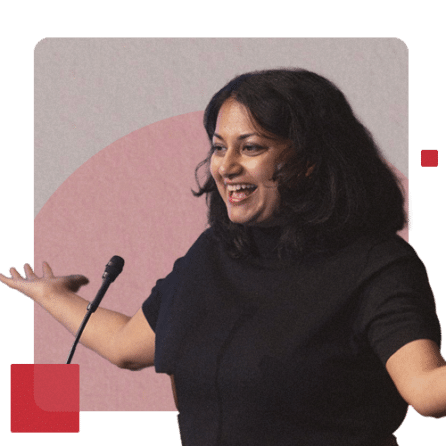 Dr. Naik is a renowned immunologist studying inflammation, wound healing, cancer, and other conditions affecting the skin. She is a strong advocate for increasing diversity in science and promoting the advancement of underrepresented and marginalized groups.
Dr. Naik is a renowned immunologist studying inflammation, wound healing, cancer, and other conditions affecting the skin. She is a strong advocate for increasing diversity in science and promoting the advancement of underrepresented and marginalized groups.
“[By including] diverse peoples with different lived experiences, we will bring fresh ideas [to science] and bravely venture into uncharted waters,” she noted.
Kay Tye
The Salk Institute of Biological Sciences
NYSCF – Robertson Neuroscience Investigator Alumna
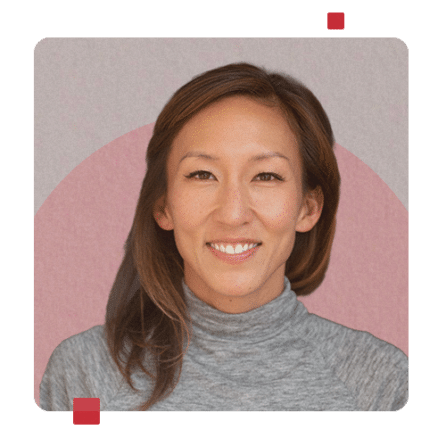 Dr. Tye investigates the biology behind behaviors like social interaction, reward-seeking, and avoidance. Throughout her career, she has been an outspoken advocate for gender equity, especially as a means for ensuring the scientific ecosystem thrives.
Dr. Tye investigates the biology behind behaviors like social interaction, reward-seeking, and avoidance. Throughout her career, she has been an outspoken advocate for gender equity, especially as a means for ensuring the scientific ecosystem thrives.
“By promoting gender parity, we’re only going to make the dialogue more open, creative, and original, and hopefully get out of these ruts that we’ve been stuck in for a while,” she said.
Marissa Scavuzzo
Case Western Reserve University
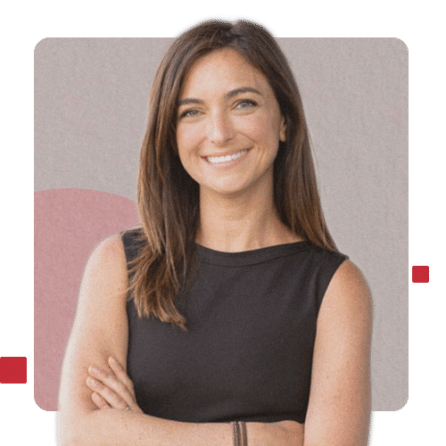 Dr. Scavuzzo is a scientist studying glia – central nervous system cells that reside in the brain and gut. She is also founder and executive director of Rise Up: Northeast Ohio, a science outreach group aimed at bringing cutting-edge, real-world science into the classroom to make science accessible to everyone.
Dr. Scavuzzo is a scientist studying glia – central nervous system cells that reside in the brain and gut. She is also founder and executive director of Rise Up: Northeast Ohio, a science outreach group aimed at bringing cutting-edge, real-world science into the classroom to make science accessible to everyone.
“We hope that [students] walk away knowing they can be scientists, but they can also do anything that they want to and a lot of these skills are things that can apply to any career,” she shared.
Jennifer Raab
The New York Stem Cell Foundation Research Institute
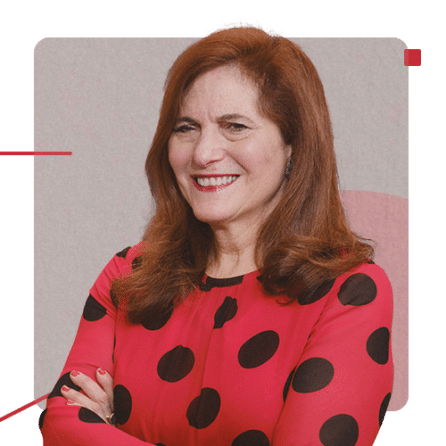
NYSCF’s new President & CEO, Jennifer Raab, is an accomplished lawyer and executive who previously served as President of Hunter College for 22 years. Hunter is the only college in the world to graduate two female winners of the Nobel Prize in Medicine, and Ms. Raab’s leadership prompted the family of Gertrude Elion (who won the prize for her groundbreaking work in drug development) to donate her medal and papers back to the university. Ms. Raab also helped launch the McNulty Scholarship Program, which provides critical resources for advancing women in STEM, and which has catalyzed the careers of many women scientists.
In her role at Hunter, Ms. Raab also established a Presidential Task Force to Advance Racial Equity, as well as initiatives to increase representation of Black students in prestigious doctoral programs. She looks forward to furthering NYSCF’s DEIB efforts to ensure groundbreaking treatments reach everyone.
“Promoting gender equity is something I have been passionate about throughout my career, and I look forward to continuing this work here at NYSCF. I am in awe of the many incredible female scientists in our community and beyond, and together, I believe we can create an environment where everyone has equal opportunities to succeed.”

